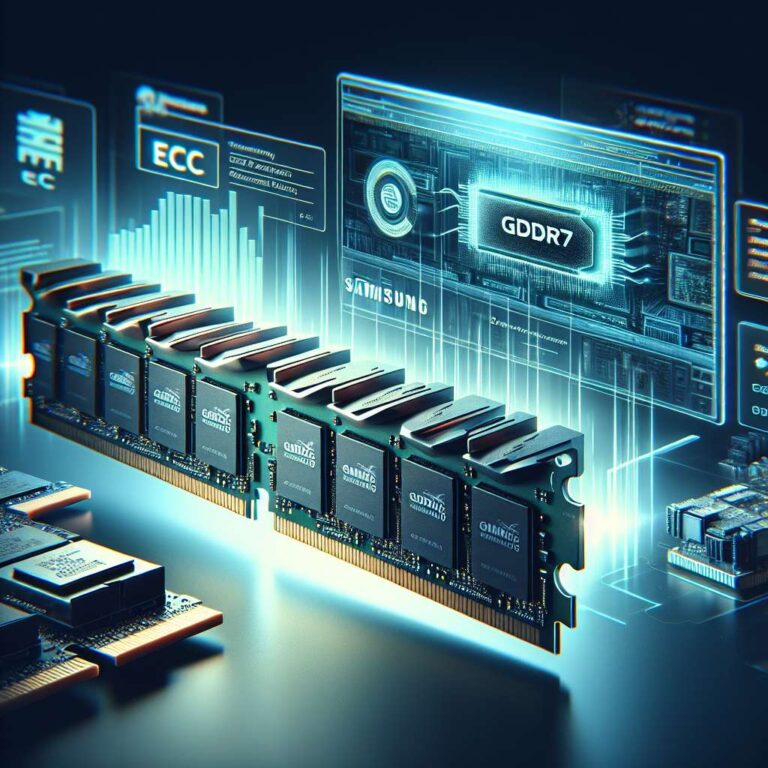Samsung has started sampling GDDR7 memory running at 36 Gbps using 24 Gb capacity dies, which translates to 3 GB per chip and positions the modules for next-generation graphics cards. The report notes that Samsung is not limited to the 36 Gbps parts. The company is already making 28.0 Gbps 3 GB modules and has put those into mass production, which the report links to what it assumes is NVIDIA’s next-generation mid-cycle SUPER refresh. The appearance of 3 GB modules in mass production is notable because such densities are rare.
The report also describes middle-end 32 Gbps 3 GB GDDR7 modules that are being sampled, but it suggests manufacturers may opt for the 28 Gbps solutions for mainstream designs in the near term. It is further suggested that the faster 32 Gbps and 36 Gbps modules will more likely be reserved for professional-level cards, where higher data rates and error correction are prioritized. The coverage specifically cites professional-grade applications as the likely early adopters of the higher frequency parts.
Examples in the report link the 3 GB GDDR7 modules to current professional NVIDIA products. NVIDIA’s RTX PRO 6000 ‘Blackwell’ GPU already includes the 3 GB modules, and NVIDIA recently updated the RTX PRO 5000 ‘Blackwell’ GPU to feature 72 GB of GDDR7 ECC memory, up from 48 GB. That RTX PRO 5000 update uses 24 modules, indicating each module has a 3 GB capacity to reach the 72 GB total. Taken together, the sampling of 32 Gbps and 36 Gbps parts and the mass production of 28.0 Gbps 3 GB modules indicate growing availability of faster VRAM, with the highest-speed parts expected to appear first in professional and pro-viz markets.

